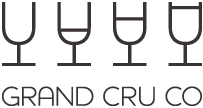Welcome back to our World of Wine News. A brief look into a few things within the wine world which we found interesting...
Trump name-drops Virginia winery but exaggerates size
President Trump reminded journalists of the winery he acquired in 2011 when asked whether he intended to visit Charlottesville, Virginia following the recent deadly violence that erupted around a white supremacist rally and counter-demonstration.
According to transcripts of the press conference, Trump said, ‘I own a house in Charlottesville. Does anyone know I own a house in Charlottesville?
‘It is the winery.’ He added, ‘I own actually one of the largest wineries in the United States. It’s in Charlottesville.’ The Trump winery itself has previously attempted to put some distance between its operations and the president.
Donald Trump did buy the winery in 2011, from Patricia Kluge, but it is currently run by his son, Eric Trump.
‘Trump Winery is a registered trade name of Eric Trump Wine Manufacturing LLC, which is not owned, managed or affiliated with Donald J. Trump, The Trump Organisation or any of their affiliates,’ says a disclaimer on the Trump winery website.
Plus, it is debatable as to whether the winery could count as one of the largest in the US. Annual production has been estimated at around 36,000 nine-litre cases of wine per year, equivalent to 432,000 bottles.
While that means Trump winery is among the biggest in Virginia, figures released by industry publication Wine & Vines yesterday (15 August) show that hundreds of wineries were estimated to have a higher level of production.
The publication’s analysis, updated in July 2017, said that there were 65 US wineries producing more than half-a-million cases and a further 263 ‘medium’ wineries producing more than 50,000 cases annually.
California accounts for nearly 90% of US wine production.
Wine could help solve writer’s block, says study
For years, writers have claimed that there is a positive link between drinking and creativity. Now, researchers from the University of Graz might have found a scientific proof to back the anecdotal theory that wine can solve writer’s block.
A study published in Consciousness & Cognition by Dr Mathias Benedek examined the effects of ‘mild alcohol intoxication’ on creative cognition. The experiment saw 89 participants solve creativity-measuring tasks after beer consumption. Some of them were given alcoholic beer, while others drank alcohol-free one, which they could not distinguish.
Each participant from the alcohol-consuming group had to reach the level of mild intoxication, which meant the concentration of alcohol in blood of 0.03% – or 30mg of alcohol in every 100ml of blood. That’s less than half the drink-drive limit in England, for example.
Then they had to complete a word association task, such as finding a link between seemingly unrelated words like ‘cottage’, ‘blue’ and ‘cake’.
The participants who drank alcohol proved to be more likely to guess that the correct answer was ‘cheese’.
The drinkers also performed slightly better in tasks measuring creative thinking, where they had to come up with as many creative uses as they could for common objects like swing or umbrella.
The study also found that alcohol consumption leads to limited ‘cognitive control’, which might be often a hurdle in solving creative tasks.
‘Alcohol may particularly play a role in mitigating fixation effects,’ said Dr Benedek in the journal article. ‘In creative problem solving, problems can often only be solved after a restructuring of the problem representation.’
‘When initial solution attempts get on the wrong track, this can cause blocks to immediate problem solving, which is known as mental fixation. Alcohol may reduce fixation effects by loosening the focus of attention.’
Dr Benedek cautioned that the findings were not an invitation to drink excessively to boost creativity. ‘Beneficial effects are likely restricted to very modest amounts of alcohol, whereas excessive alcohol consumption typically impairs creative productivity,’ he said in the study write-up.
UK: Police uncover million-pound wine investment scam
City of London Police arrested three men on 3 August suspected of operating a ‘boiler room’ wine investment scam.
It is believed that investors, many of them elderly, have collectively lost more than £1 million in the scam, which the men were accused of running from a base on Fleet Street, central London. Police said that victims were cold called by salespeople offering them an opportunity to invest in fine wine and promising returns of between eight and 40%.
If proven, it is the latest in a series of fine wine investment scams uncovered in the UK in recent years. Potential investors were told to buy extra wine, because buyers were already in place for them to sell on to, police said.
It was not clear whether all three men arrested have been formally charged. A police spokesperson declined to comment further on the case when contacted on 10 August. ‘Boiler room’ is a term used to describe an outbound call centre selling investments over the phone, usually employing dishonest techniques.
‘Boiler rooms continue to be a major threat to individuals in this country and statistics show that those who are over 60 are particularly vulnerable to this type of crime,’ said Andrew Thompson, City of London Police detective inspector.
‘Fraudsters will do everything they can to manipulate potential victims and convince them that they are making genuine investments.’
The investigation into the case was launched after Action Fraud, the national fraud and cyber reporting service, received complaints from the victims.
So far, 39 victims have contacted Action Fraud. Their combined, estimated losses total over £1 million.
The City of London Police said that it has been contacting victims of the bogus company.




